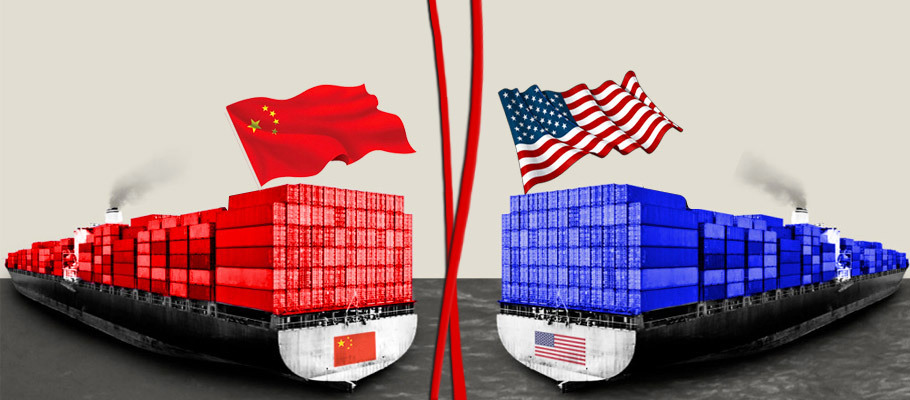
Published: June 30th, 2020
China has subtly told the U.S. to stop crossing the red line or jeopardize the trade deal that both countries negotiated. In particular, Beijing reiterated that the U.S. meddling in Taiwan, Hong Kong, and other matters that China feels are sensitive would negatively affect Chinese purchases agreed on in phase one trade deal.
China has subtly warned the U.S. to stop meddling in its internal affairs or see the fruits of the phase one trade deal negotiated between the two countries go up in smoke. According to a news article published on the Wall Street Journal, China wants the U.S. to keep off the sensitive issues.
Although the phase one trade deal between the two countries is still viable on paper, China warns that continued probing by the U.S. on these matters that China considers internal may force the populous Asian country to stop the purchase of particular American goods.
The trade deal negotiated in January saw China pledge to import $200 billion worth of U.S. goods that include pork and soybeans. Even before Beijing makes real of its threats, experts are warning that China was not keen about keeping its end part of the bargain.
Evan Rees, Stratfor’s analyst for Asia and Pacific, says that it does not look like China will attain its purchase obligations highlighted in the phase one deal. Evan adds that the agreement as currently constituted is unrealistic.
The analyst noted that while the deal is still intact, its longevity hangs on the balance for several reasons. He says that the numerous triggers that are likely to derail the agreement include Huawei, Hong Kong, Taiwan, several human rights issues, and confrontations in the South China Sea.
On Thursday, June 24, while responding to the new national security bill that China plans for Hong Kong, the U.S. Senate passed a bill to place sanctions on Chinese business people and senior officials of the government that undermine the autonomy of Hong Kong.
While meeting the U.S. Secretary of State, Mike Pompeo in Hawaii last week, Yang Jiechi, a senior Chinese diplomat, restated that China is not impressed by the new sanctions. He said the U.S. is putting in place unnecessary restrictions to respond to the original bill and the detention of Uyghur Muslims occupying the Xinjiang region.
The Chinese diplomat reiterated that his country is committed to seeing the trade deal succeed. However, he noted that the success of the deal depends on the corporation between the two economic super-powers, reiterating that both sides of the divide must work together.
Yang’s message seemingly has many translations. According to another Chinese official, Yang meant the U.S. should not meddle any more in China’s internal matters, and if it crosses the red lines, then China will have no recourse but to renege on the phase one trade deal altogether.
These sentiments were stressed by Liu He, the Chinese Vice Premier, who is also the country’s top trade negotiator. Liu suggested after a Politburo meeting on June 18 that China’s ability to fulfil its purchasing promise as highlighted in the trade deal require that the U.S. go easy on the pressure points.
These thoughts contradict President Trump’s position. The U.S. strongman said earlier last week that the trade deal is fully intact. He showed this extreme level of optimism despite the comments by Peter Navarro suggesting that the deal was over.
Navarro later retracted his comments saying that his “over” comments were taken wildly out of context. However, Trump’s tweet seemed more of optimism rather than genuine conviction. The president took to Twitter, posting that hopefully, China will continue to uphold the terms of the deal.
In an interview on Fox News where he said that the deal was over, Navarro said the turning point happened when the U.S. got wind of the coronavirus that was spreading first, only after the Chinese delegation left departed from Washington D.C. after penning the deal on January, 15.
The turnaround, however, seems instigated by the retribution he got from his colleagues from the White House, the Chinese side, and because of the choppy performance of the financial markets.
Zhao Lijian, the Chinese foreign ministry spokesman told reporters that Navarro is an official who lacks integrity, is dishonest, and consistently lies. He said that China’s stance on the deal remains consistent and clear.
The ruffled markets have since calmed after Navarro’s dramatic about-turn. The U.S. stock futures, which initially trudged on the negative region, quickly recovered after the White House official downplayed his statement saying that it was in no way about the U.S-China deal.
Navarro, who is the most outspoken critic of the Orient nation among Trump’s senior advisers, said he was speaking about the lack of trust existing between Washington and Beijing. The mistrust, according to Navarro, was exacerbated by the lies about the origins of coronavirus. He blames China for thrusting the pandemic into the unprepared hands of the already struggling world.
Experts feel that the Sino-U.S. trade deal is unrealistic because despite taking two years longer than the anticipated negotiation durations, it heaped taxes on $370 billion worth of Chinese products. Besides, it stagnated global economic growth and threw the financial markets in a never-ending dilemma.
Despite Trump’s optimism and Navarro’s change of stance, the relations between China and the U.S. are probably at their lowest. The spread of coronavirus, which started in China and hit the U.S. hard, is not making matters any more comfortable.
The trade deal between China and the U.S. hangs on the balance. Beijing warned that if the Trump administration keeps meddling on Taiwan, Hong Kong, Huawei, the country’s continued engagement in the South China Seas, and its poor human rights records, then China will have no choice but to renege on its part of the deal. Despite many senior Chinese officials reiterating this stance, Trump is optimistic. He chose to tweet that the deal is still intact.